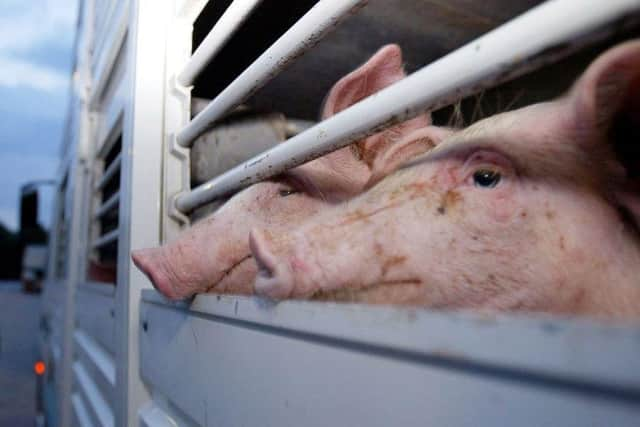Ukraine-Russia: War 'compounding' problems in Scotland's food supply chain
Scott Walker, chief executive of the National Farmers Union Scotland, said the Russian invasion had driven up the price of fuel and animal feed.
Meanwhile, fishing representatives said there had been a "significant" impact on the sector's profitability.


Advertisement
Hide AdAdvertisement
Hide AdGiving evidence to Holyrood's rural affairs committee, Mr Walker said: "Because of the rise in gas prices, what we've seen is a very substantial increase – a doubling and trebling in some cases – in fertiliser prices."
He said the poultry and pig sectors had seen an immediate increase in costs.
Mr Walker said: "Just now every pig producer in Scotland will be losing around £50 on every pig that they sell, which is already leading to a contraction in the pig supplies coming from Scottish farms and jeopardising the processing sector in Scotland.
"We see the same issues, without going into the detailed figures, both in the poultry and egg sectors just now, which fundamentally undermines our ability to produce."
Mr Walker added: “I’ve spoken to pig farmers who are reducing the size of the herd, and some individual pig farmers who are in the process of winding down the business and going out of business during the next few months.”
Elspeth Macdonald, chief executive of the Scottish Fishermen’s Federation, said: "Certainly, the impact of fuel costs on our industry are significant – significant impacts on profitability."
She said Ukraine was an important market for mackerel, with more than 20 per cent of Scottish exports sent to the country before the war.
Ms Macdonald added: "I think so far as the Shetland fleet is concerned, that would have been around the 30 per cent mark.”
Advertisement
Hide AdAdvertisement
Hide AdBut Alan Matthews, professor emeritus of European agricultural policy at Trinity College Dublin, said “the picture is not a dark one overall”, with sectors facing different impacts.
Arable farmers, for example, “will look forward to quite a profitable season”.
Labour on farms has also been affected.
Mr Walker said: “Many farms in Scotland would have had a lot of Ukrainian workers in the past, predominantly through the vegetable sector.
“I know of some farms in Scotland where that would have been up to 80 per cent of their workforce.”
Comments
Want to join the conversation? Please or to comment on this article.

